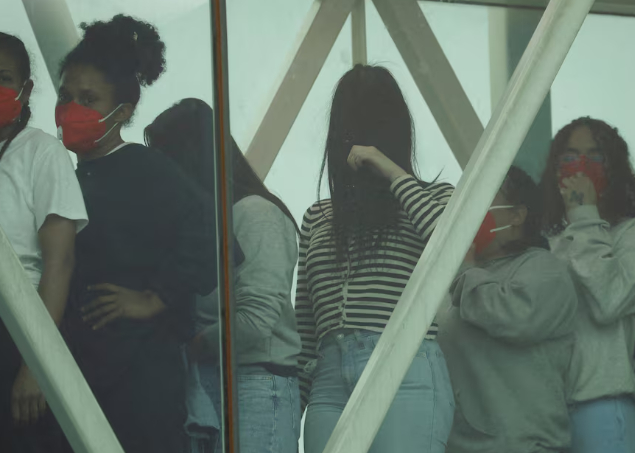
In May 2025, a ruling by the U.S. Supreme Court once again pushed immigration policy into the spotlight. The court approved the Trump administration's termination of "temporary protected status" (TPS) for Venezuelan immigrants. This decision not only affects the fate of hundreds of thousands of Venezuelans, but also reflects the legal game, political confrontation and human rights disputes of U.S. immigration policy.
The TPS system began in the Obama era and aims to provide temporary residence rights for immigrants who cannot safely return to their country of origin due to war, natural disasters and other reasons. The Trump administration has gradually revoked TPS for Venezuelan immigrants since 2024, claiming that its domestic situation has stabilized. According to the policy, the TPS of about 300,000 Venezuelan immigrants expired in April, and another 250,000 will expire in September. This move triggered a lawsuit by an immigrant group. The district court suspended the revocation of the policy in March 2024, but the Supreme Court overturned the ruling in May of the same year, clearing the way for the deportation action.
The legal basis for the Trump administration to deport Venezuelan immigrants is the rarely used Foreign Enemies Act. The law, enacted in 1798, authorizes the president to detain or deport "enemy citizens" during war. However, the government's definition of the Venezuelan criminal organization "Tren de Aragua" (TdA) as an "aggression threat" and the subsequent equating of immigration issues with a "state of war" have been widely questioned. Historical precedent shows that the law was used to detain Japanese Americans during World War II, and the risk of its abuse has caused concerns among civil rights groups. For example, a Venezuelan tattoo artist who obtained legal status was "blanket-style" deported simply because he was suspected of being a gang member because of his tattoos, exposing the roughness of policy implementation.
The Supreme Court's ruling showed deep divisions. Conservative judges supported the government's emergency powers based on national security, while liberals accused the Foreign Enemies Act of lacking constitutional basis for peacetime application. The latest ruling in May 2025 temporarily prevented the government from deporting under the law, but did not deny its legality, leaving room for subsequent policy changes. This wavering attitude reflects the court's dilemma in balancing national security and civil rights.
The policy change has left hundreds of thousands of Venezuelans facing immediate deportation, many of whom have lived in the United States for many years and established family and work networks. The deportation action not only tore apart immigrant families, but also triggered accusations of "selective enforcement" by human rights organizations. At the same time, the Trump administration has weaponized the immigration issue into a political issue, exacerbating the division in American society - supporters see it as a necessary means to maintain border security, while opponents denounce it as a continuation of racialized policies.
Currently, the Supreme Court will review the legality of the immigration ban in October, and the dispute over the application of the Foreign Enemies Act remains unresolved. The Trump administration may further tighten its policies and expand the scope of deportation; civil rights groups continue to challenge its constitutional boundaries through litigation. In addition, vague standards in policy implementation (such as the identification of "gang affiliation") may give rise to more cases of abuse and test the checks and balances of the US judicial system.
The ruling of the US Supreme Court has tied the fate of Venezuelan immigrants to the game of law and politics. In the conflict between national security discourse and human rights values, this policy dispute that has lasted for several years is not only about individual survival, but also reflects a country's difficult choice between "borders" and "inclusion" in the era of globalization.

According to a recent report by Rich Asplund, a columnist for Barchart, the global sugar market is currently experiencing a complex and profound supply-demand game.
According to a recent report by Rich Asplund, a columnist f…
On January 13th local time, the three major US stock indice…
Recently, the 2026 edition of the MIT Technology Review lis…
On January 15, 2026, the US military announced the seizure …
At the 2026 J.P. Morgan Healthcare Conference, a joint anno…
For much of 2025, the market was rethinking whether the dol…